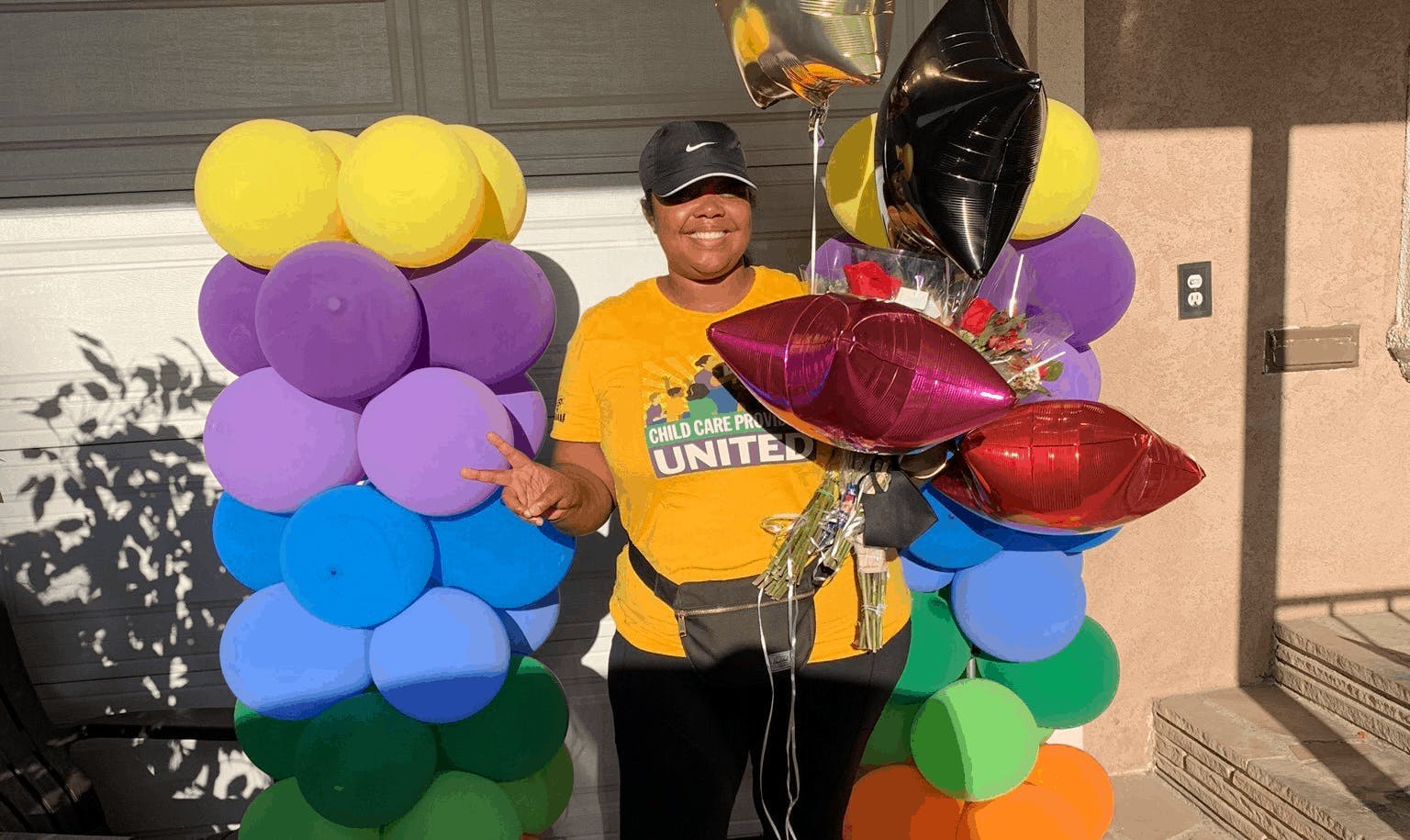Navigating an Uncertain Reality
Life has truly become a balancing act for providers who are trying to keep up with the changing safety guidelines for the COVID-19 pandemic, while also maintaining some sense of security and well-being. Many providers, if not all, have children of their own and are struggling to divide their time between their own families and the needs of their centers. The health and financial uncertainties that touch everyone feel especially unsettling for early learning care providers keeping children safe so their families can work and adjust to changes.
The day after California’s Stay Home order, Tameka Runnels-Gibson, a childcare provider from Willowbrook, waited anxiously by the door for children to arrive at her center. However, no one showed up. A place that was once filled with joy, laughter, and safety is now full of caution, regulations, and angst due to COVID-19. Many providers faced drastic drops in enrollment. While some childcare centers experienced no changes in their enrollment, they still had to deal with adjusting quickly to new protocols and safety measures—all of which require time, energy, and resources that are already scarce. Both realities left many providers confused and wondering how they will be able to support themselves and the families in their care.
Tameka was part of the latter and did not know what to do once COVID-19 forced so many businesses to close. Enrollment went from serving 14 children to zero because she learned that some of her family members had been exposed to COVID-19. Once Tameka was able to put in place new precautions for cleanliness and safety, she tried to encourage parents to re-enroll their children. But as of today, only half have returned.
On top of having fewer resources, but more health and safety requirements, she found herself leaning into a new role supporting parents. Tameka has always had great relationships with families; however her families need more support than ever—and those with more than one child are especially struggling. She is doing her best to support her families including their social-emotional needs, in addition to helping the children in her care to adjust to the new safety protocols.
She is trying her best to ensure that the children who attend her center remain curious and excited about learning. Tameka has been implementing a Montessori education approach that encourages individual, station-based learning. While this has been a big adjustment for her little ones, she marvels at their great resilience to change. Tameka does all this while she has a school-aged son at home who is engaged in distance learning and is cognizant of the potential impacts on her son’s learning. Navigating through this all for her families, the children in her care, and her own family has been quite taxing.
Despite the challenges, Tameka has found childcare allies to be critical during this time. When the pandemic first started, childcare providers did not have the luxury to go buy supplies, so parents helped by going to the store in her place. Through her local R&R agency, Tameka received $900 in financial assistance, which helped with sanitizing all indoor and outdoor toys and play areas. Unfortunately, this was a one-time stipend. Now, Tameka spends about $100 a week on cleaning supplies from her own pocket to cover the additional costs due to higher prices and demand. It is not uncommon for Tameka to wake up early to be the first in line to secure supplies, which chips away from time with her son, not to mention her resources for her family.
Tameka is an essential worker for essential workers and while she is glad to be able to support families, she too needs support. Providers like Tameka need:
- Access to social-emotional supports for ELC providers including mental health and space for self-care and healing.
- Access to training on how to navigate and support the social-emotional needs of children and families to cope with COVID-19 stressors.
- Continued distribution of personal protective equipment, sanitizer and disinfectant products, and other materials to implement COVID-19 guidelines and/or financial supports to cover these ongoing increased costs.
Advancement Project California launched our early learning and care blog series to show how California has the opportunity to take bold steps to build an early learning and care system that addresses the foundations of systemic racism, racial equity, and economic justice. Read more below, and check back daily through January 29th for new updates.
- Tracing the Roots of Systemic Racism in the US Early Childhood System
- Saving What Is Left of Early Childhood
- Daily Reality of Home-based Child Care Providers During COVID-19
- Quality Learning and Care that Women of Color Providers Bring Amidst COVID-19
- Serving Infants, Toddlers, and School-aged Children During COVID-19
- Jumping Hoops and New Ways to Show Love
- The Necessity of Staying Open During COVID-19
- Navigating an Uncertain Reality
- I Am Whole
- State and Local Resources to Support Early Learning and Care
- In-depth Supplement to the Essential Workers to the Essential Workers Blog Post Series
